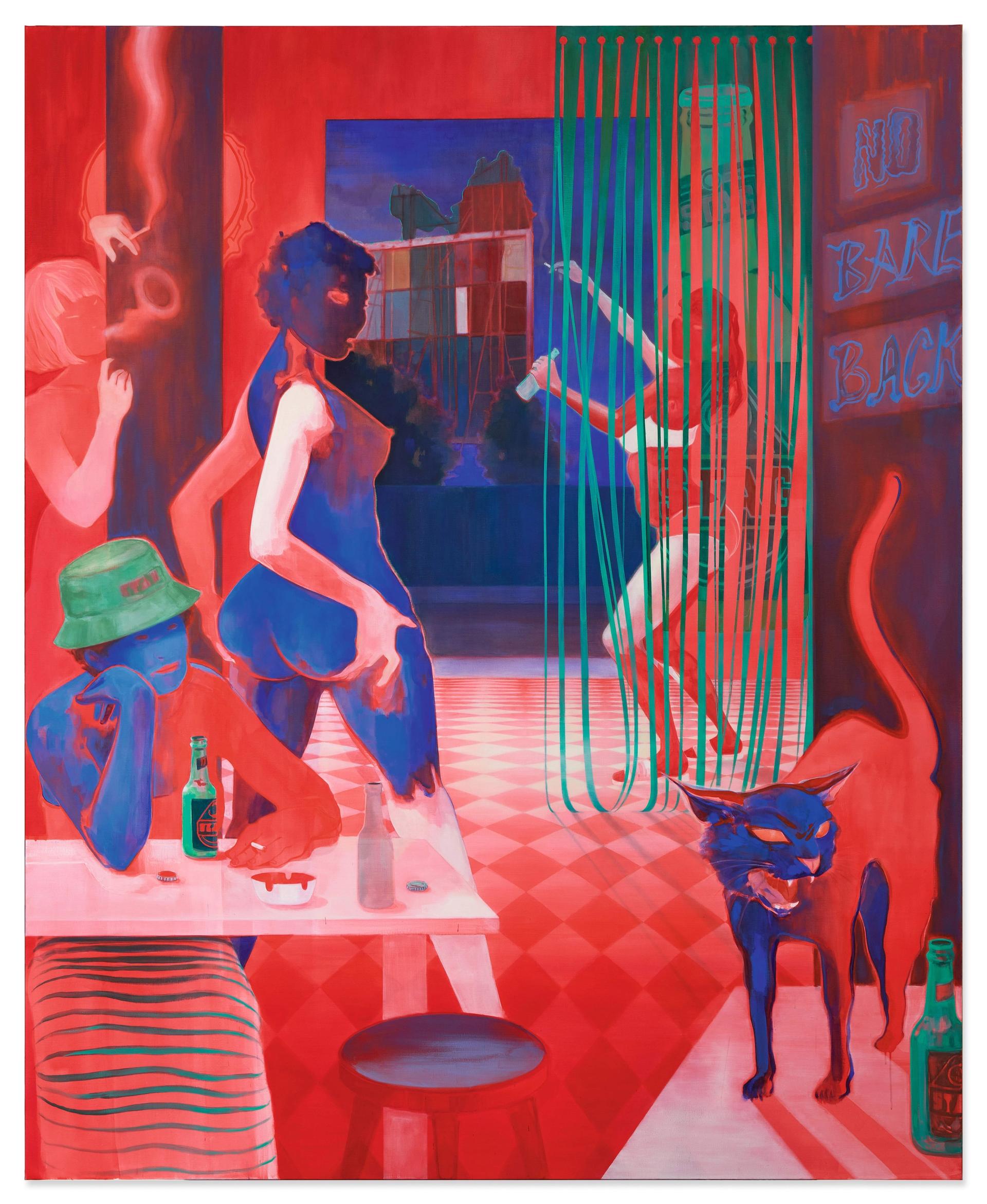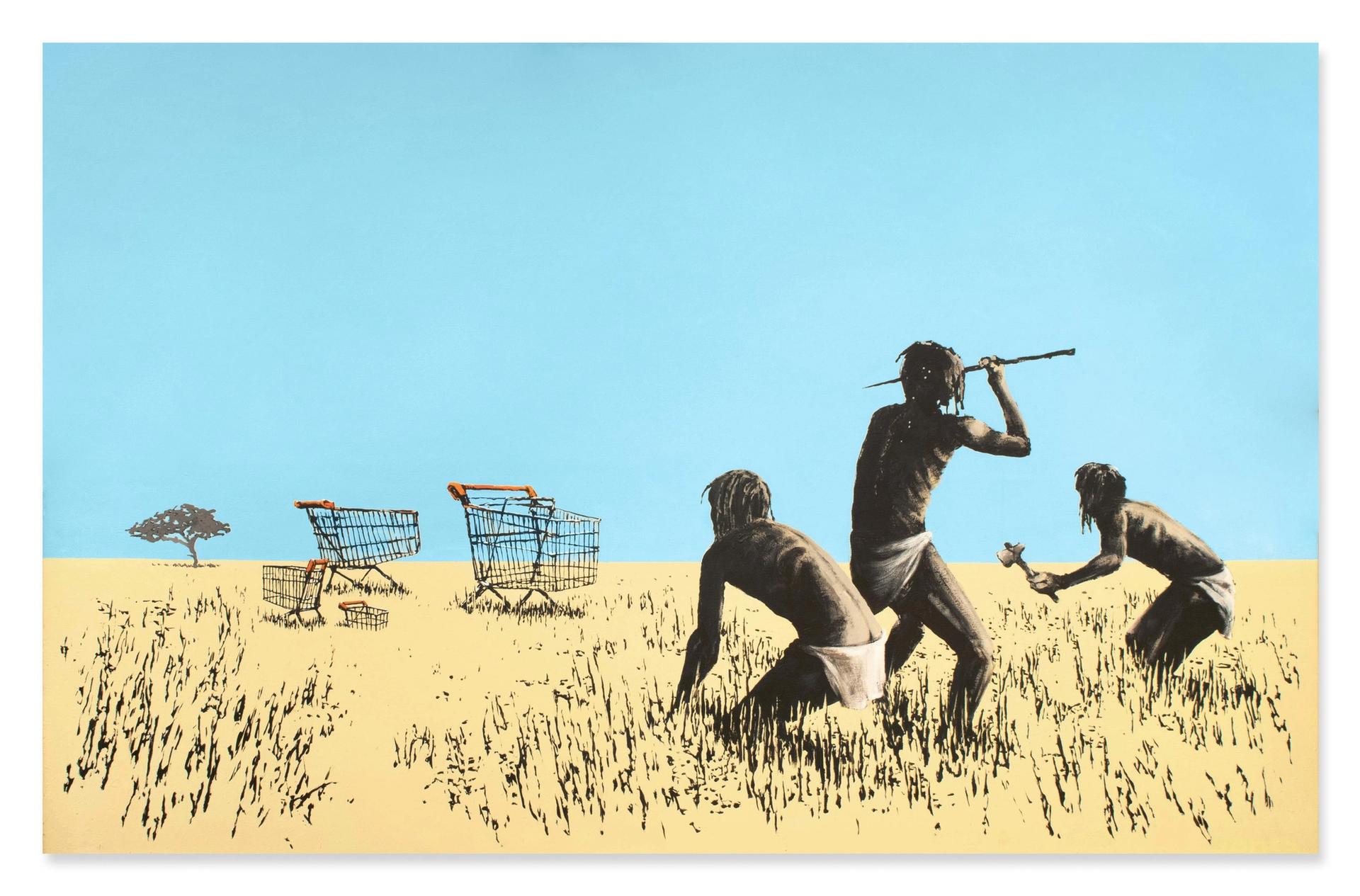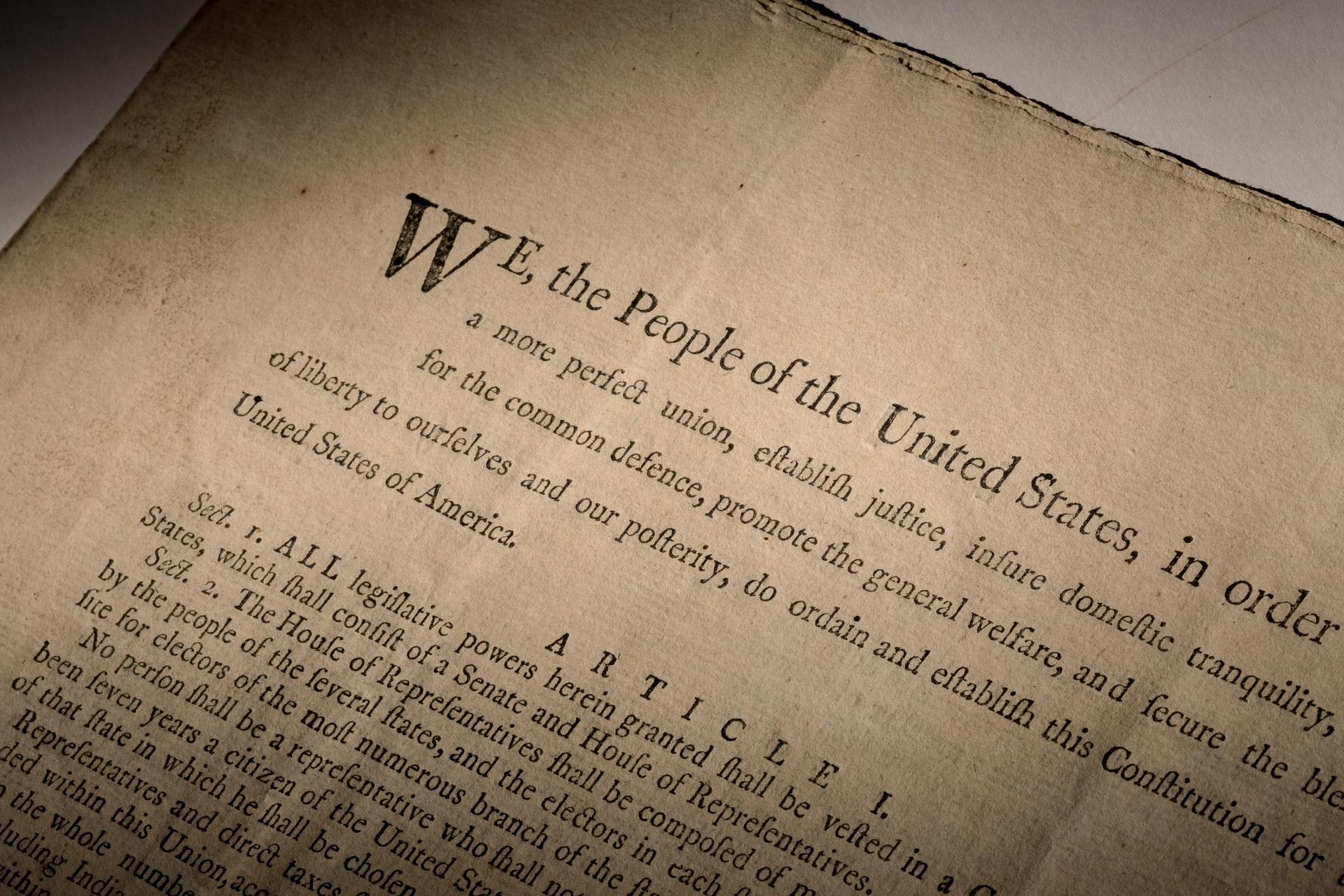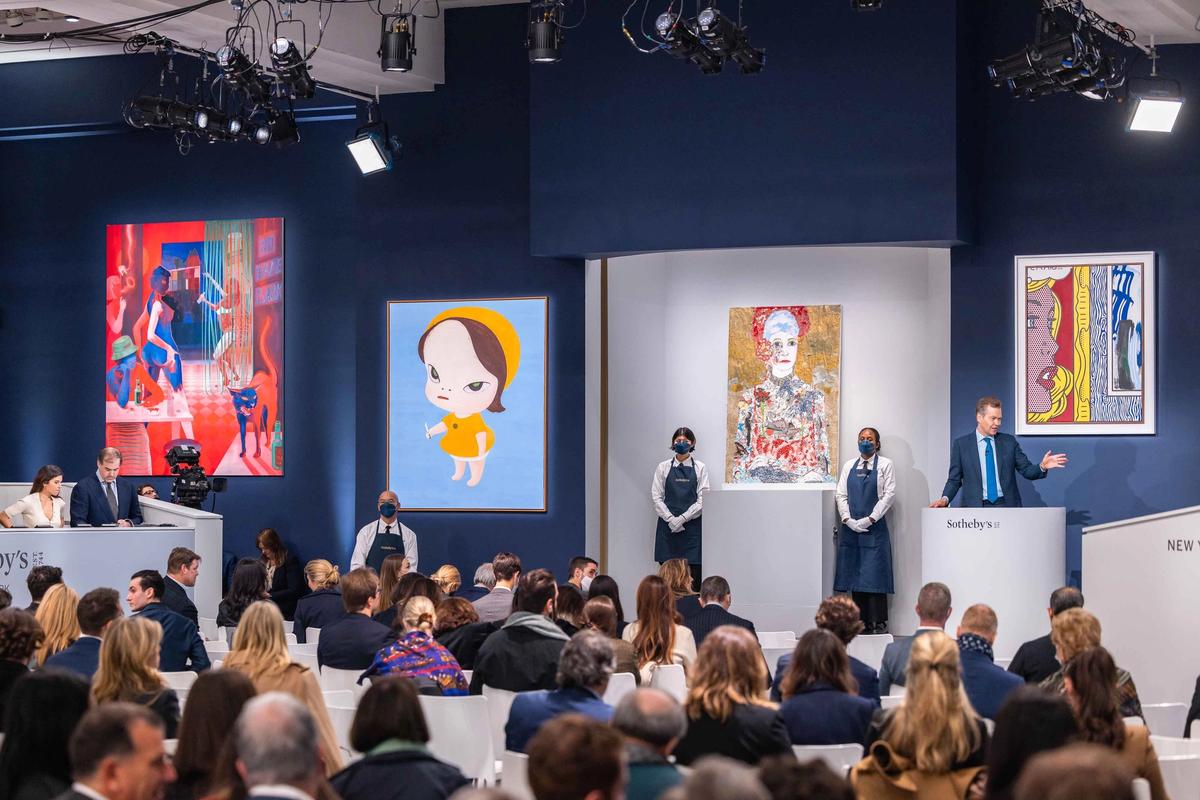Despite the long auction week and autumn weather hitting New York, the market was in full bloom during Sotheby’s three sales on Thursday night.
Most lots met their low estimates, and a few elicited outright bidding wars. The new sale format, The Now (of super-contemporary works) and Contemporary auction (of not-so-contemporary art) together totaled $191.1m with fees. Nine artist records were set and 99% sold by lot. And the somewhat out of place, but entertaining and competitive single-lot sale of a rare first printing of the US constitution brought in an additional $43.2m (with fees), adding up to a $234.2m evening for the auction house.
The evening began with Sotheby’s newly conceived The Now sale, which focused on works created within the last 20 years. The first few minutes were adrenaline-fueled with bidding for each work by market-hot, "red-chip" artists surpassing the high-estimate in mere seconds.

Lisa Brice's No Bare Back, after Embah
Courtesy of Sotheby's
Before Sotheby’s auctioneer Oliver Barker could open the bidding for the first lot, No Bare Back, after Embah (2017) by Lisa Brice, two bids were shouted out, one for $500,000 and another for $600,000. Not bad considering the estimate for the work was between $200,000 to $300,000. “You’re going to do my job for me, thank you very much, this is the best start to an auction I’ve ever had,” Barker remarked.
The picture, which was withdrawn from Sotheby's contemporary sale in London in October 20202, finally hammered at $2.6m ($3.1m with fees) after six minutes of crossfire bids. That's a record and 91 times her previous auction record, according to Sotheby's.
The breakneck pace continued through the second and third lots—María Berrío’s collage Flor (2013) hammered for a huge $750,000 ($927,500 with fees) on an estimate of $80,000-$120,000, and Through Line, a 2017 figurative work by the Nigerian-American artist Toyin Ojih Odutola, sold for an impressive $1.8m ($2.1m with fees) off an estimate of $500,000-$700,000.

Cecily Brown's Bend Sinister
Courtesy of Sotheby's
Midway through the sale, Sotheby’s for the first time accepted cryptocurrency from bidders on the phone and in the room. The two works that were eligible were by Banksy, no surprise there. What was surprising was Barker’s calling out the bid in both the cryptocurrency Etherium and dollars. Tricky that, and at least twice there was a small pause to calculate exchange rates.
Trolley Hunters (2006), Banksy’s satirical critique of capitalism that depicts three prehistoric men hunting a family of shopping carts, landed comfortably in between its estimate of $5m-$7m, hammering at $5.6m, or 1397 ETH ($6.7m with fees). Love is in the Air (2006), the classic Banksy image of a protester hurling a bouquet of flowers, just bested its high estimate, selling for $8.1m with fees (1696 ETH, estimate $4m-$6m) after a full twelve minutes of bidding.
The auction totaled $71.9m, double its low estimate ($36.6m-$53.2m) with every lot sold.

Banksy's Trolley Hunters
Courtesy of Sotheby's
Following The Now sale was the single lot sale of the United States Constitution, one of only 13 copies known to exist and one of two that are still in private collections. There was a lot to unpack here, not the least of which was the consortium of crypto-advocates, ConstitutionDAO, who raised $47m to buy the document. ConstitutionDAO was comprised of over 17,000 people who chipped in Etherium cryptocurrency to buy the historical document, which carried an estimate of $15m to $20m.
The bidding began at $10m and within seconds rose to $14m. A bid from Brooke Lampley, Sotheby’s chairman and worldwide head of sales for global fine art, brought the price up to $30m. As Lampley whispered into her phone, David Schrader, Sotheby’s worldwide head of private sales upped the bid to $31m. The back and forth between the two continued for nearly eight minutes, with Lampley consistently bidding at the very last moment and her bidder eventually winning the Constitution for $41m. It was revealed by the ConstitutionDAO Twitter and Discord accounts that they lost the bid, in large part because of the gas fees that accrue when using Etherium, the cost of storing and insuring the Constitution and the Sotheby’s buyer’s premium. All proceeds from the sale went to the Dorothy Tapper Goldman Foundation, whose mission is to further the understanding of the constitutional principles and how the acts of all citizens can impact American democracy.
After all the drama, the final sale, Sotheby’s contemporary evening auction flew by. Bidding was strong but swift throughout the sale’s 34 lots, half of which sold above their high estimates. There were a number of works from the collection of producer Douglas Cramer in the sale, one of which, Roy Lichtenstein’s Two Paintings: Craig… (1983) set off a six-way bidding standoff. The picture, which was estimated to sell for $12m to $18m eventually hammered at $17.5m ($20.3m with fees).

The Official Edition of the Constitution, the First Printing of the Final Text of the Constitution
Photo: Ardon Bar-Hama
Cecily Brown’s work was another standout. Her canvas Bend Sinister (2002) was one of the most hotly contested works of the night and eventually sold for five times its high estimate, hammering at $5.3m ($6.3m with fees, est. $800,000-$1.2m) to the advisors Ruth Catone.
Meanwhile Ed Ruscha’s meticulous 1967 gunpowder drawing Face It sold for $2.7m ($3.2m with fees), easily surpassing its $400,000 to $600,000 estimate.
It has been quite a week at Sotheby’s. The Macklowe Collection sale earlier this week netted $646m, the highest sale total in Sotheby’s history. So far this week's auctions have brought in a total of just over $1.2bn. And there are still two day sales to go.


